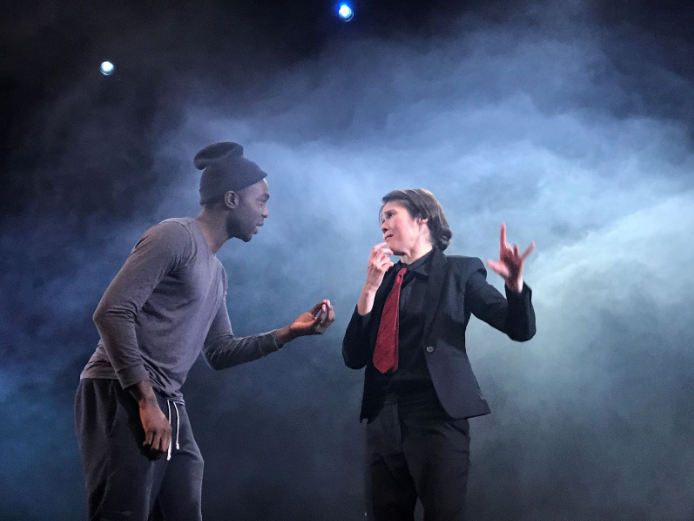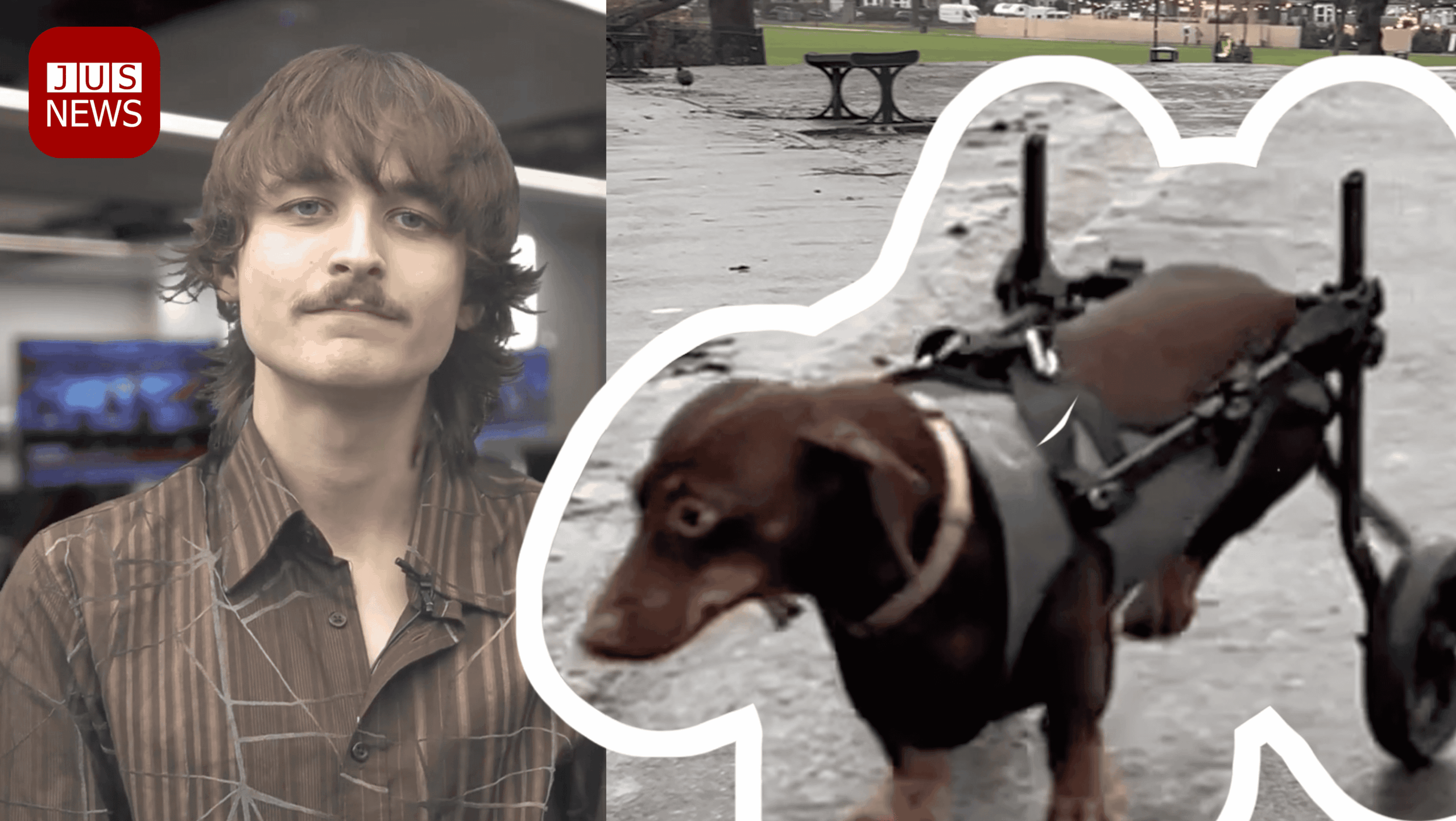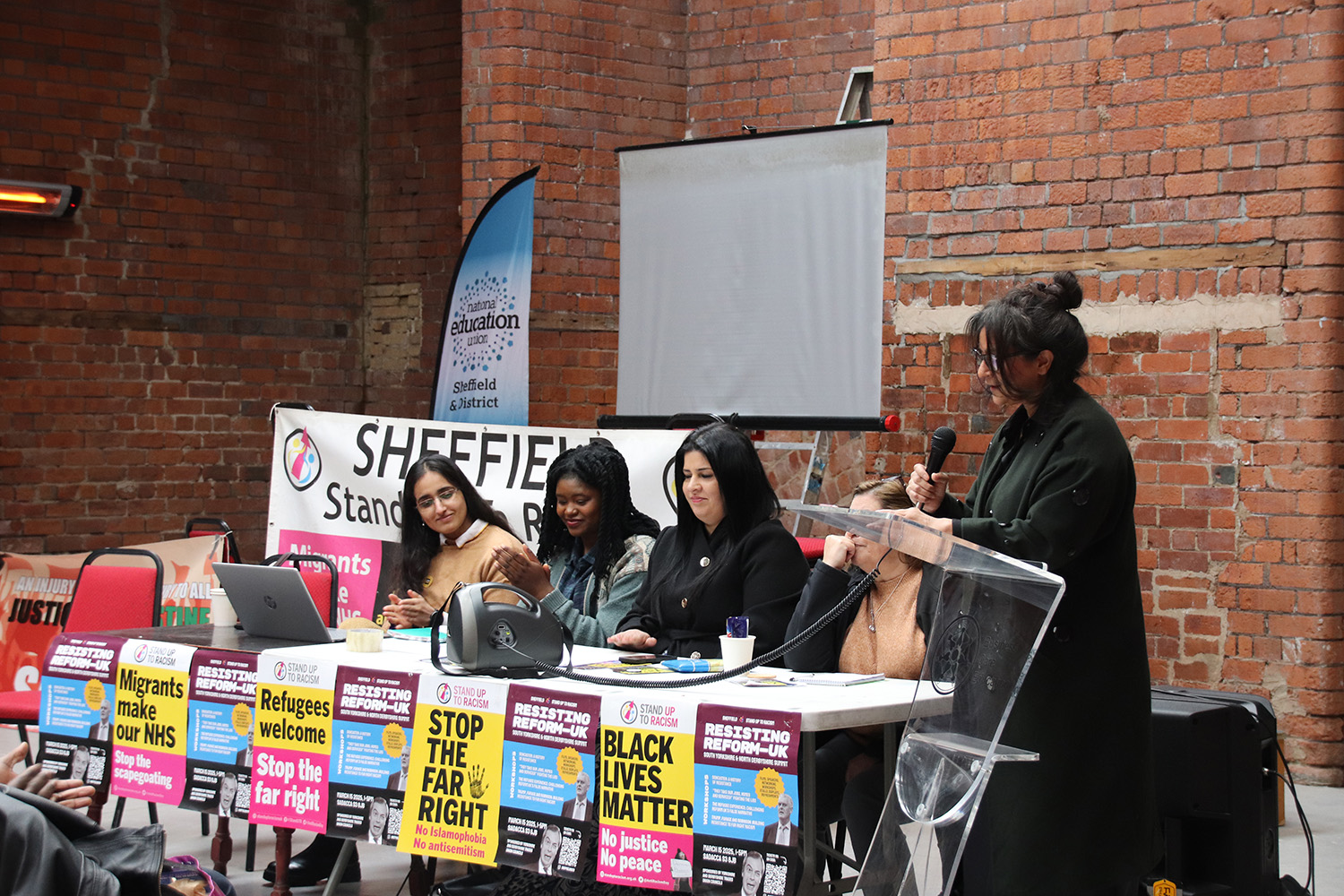A daughter of Deaf parents who works for the RSC has told how attending a play with them which integrated sign language transformed their understanding of Shakespeare.
Mesmerised by the Deaf actor signing the opening, her parents could not believe that it was Shakespeare at all, but by the end of the play were acting out the parts of the play.
This inspired a lot of the work to access within the Royal Shakespeare Company for Josefa Hunter MacKinnon, the Creative Programme Developer, who said: “It was amazing, that transformation of their understanding and empathy for the characters and the plot of what was going on.”
“I feel that people get a real enhancement when they see integrated BSL because Shakespeare writes so visually and BSL is visual, when you see the signs whilst they’re interpreting Shakespeare it makes what he’s saying so much clearer because you’re picturing it.
“We had one sign in Hamlet where they were talking about being drowned and you had this beautiful image of Ophelia floating to the bottom through the interpreter’s gesture. So that’s something that you don’t normally see when you do Hamlet but you get a really strong image of it through sign language.”
Ms MacKinnon, who is also Access and Inclusions co-ordinator at the RSC, explained that for the generation of people without the cochlear implant there was a level of language deprivation that made British Sign Language essential.
Ms MacKinnon said: “It’s a form of neglect as there’s no way for them to access language if they don’t grow up in a sign language environment. Those knock-ons mean that it’s really difficult for Deaf actors to access Shakespeare. This is the point that I’m getting to because you can’t directly sign ‘to be or not to be’. There’s no sign for that.
“To do that, you have to know the script to the level of PhD students or directors that work on the scripts. So it’s not as accessible as Shakespeare is to anyone hearing in a mainstream school who’s grown up knowing Shakespearean expressions.”
When it comes to auditioning for a Shakespeare role one Deaf person would need four rehearsal interpreters in the room, the access and inclusion co-ordinator explains, meaning that at the moment there is still no way that you could do a read-through with a Deaf person with the same equity as the rest of the cast.
Ms MacKinnon explains that the RSC is looking for funding for a 20-year project which she has named the BSL Translation Project to provide more support translating BSL for d/Deaf Actors.
She said: “We have had Deaf actors before, but we announced that Charlotte Arrowsmith was our first BSL Deaf actor for Troilus and Cressida in 2018. Charlotte was cast to play a Deaf character who used sign language and we learnt so much from that experience.
“I don’t think we got it all right but each year we have used Deaf actors in our shows although we try not to cast one Deaf actor now because it’s very isolating.”
Deaf Actress Paula Garfield set up Deafinitely Theatre in 2010 to provide greater opportunities and support for d/Deaf actors as well as running its own youth workshops.

Dilara Earle, youth coordinator at Deafinitely Theatre in London, said: “These workshops are great to make it accessible for Deaf young people to realise that there’s a vocation out there that they might be really good at but wouldn’t have been otherwise uncovered by teachers at school because their communication is limited with their own families or at their own school.
“Conversely, you get children who are in mainstream schools but have not been confident or had the chance to join the d/Deaf community or use sign language and you see them come in and it’s slowly eased in for them and you see them leave much more confident about their Deaf identity.”
Deafinitely Youth workshops are open to the spectrum of Deafness, Ms Earle explains, including children of Deaf parents and always provide two interpreters per session to allow people with BSL skills to fully access what is happening.
She said: “We find a few young people who I feel have guilt and shame about not knowing that much sign which is not their fault.
“I focus a lot of my time on getting them to work together so it doesn’t become like a case of those with a similar deafness will stick together. People mix and they support each other in their communication or their Deaf identity journey.”
The director explains that more awareness is needed to bridge the gap between young people and Deaf young people to eradicate negative preconceptions.
She said: “In general it would be lovely to see more small grassroots opportunities that would feed back into bigger opportunities for young people to access the performing arts and learn about it throughout their secondary or primary education and then have more choices when they leave school.
“I work in TV as well so I know from experience when you don’t have access to something it’s going to be very difficult to win a spot.”
Deaf Actor, Richard Peralta, uses both of their hearing aids and has performed in productions of Much Ado About Nothing at Sheffield Theatres and Ramps on the Moon as well as in Wendy and Peter Pan at Leeds Playhouse.
The actor explains that even relatively simple aspects of theatre can be a challenge for d/Deaf Actors, they said: “Even just being in a rehearsal room, traditionally we have our script in hand and we’re looking at the script as we’re working out our scenes.
“Even just having a smart television in the room with the dialogue visible to everyone, especially if you are a BSL user when you have to use both of your hands to sign as you can’t hold a script, really helps the process.”

As Agent for Change for Sheffield Theatres, Mx Peralta provides feedback to support and improve access for d/Deaf actors to keep awareness growing within the company.
They said: “One of the main things I’ve noticed about young Deaf actors within the industry is they’re more keen to stand up for themselves and fight for the opportunities. They’ll work with agents and say: I understand this particular role is of a hearing person, but are you open to considering a Deaf person or BSL user or even just a hearing aid user for that role where they could partially sign or use their voice, speak and sign?
“That advocacy is very much there from younger actors, but at the same time, that’s bringing older actors, in my opinion, into it as well, because some of the older Deaf actors I’ve met have been amazed by seeing other Deaf actors advocate for themselves and for these roles.
“More Deaf actors are fired up about finding work, getting work, and being keen on saying we deserve more roles.”
For more information on Access performances visit RSC, Deafinitely Theatre, or Sheffield Theatres.




